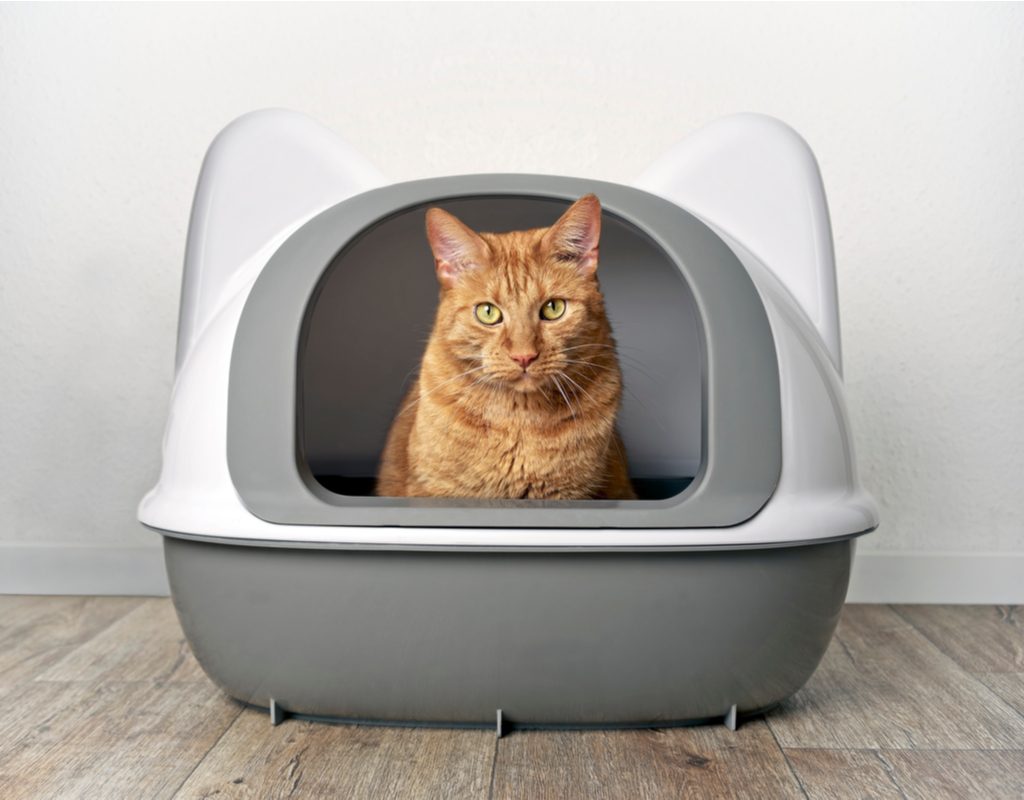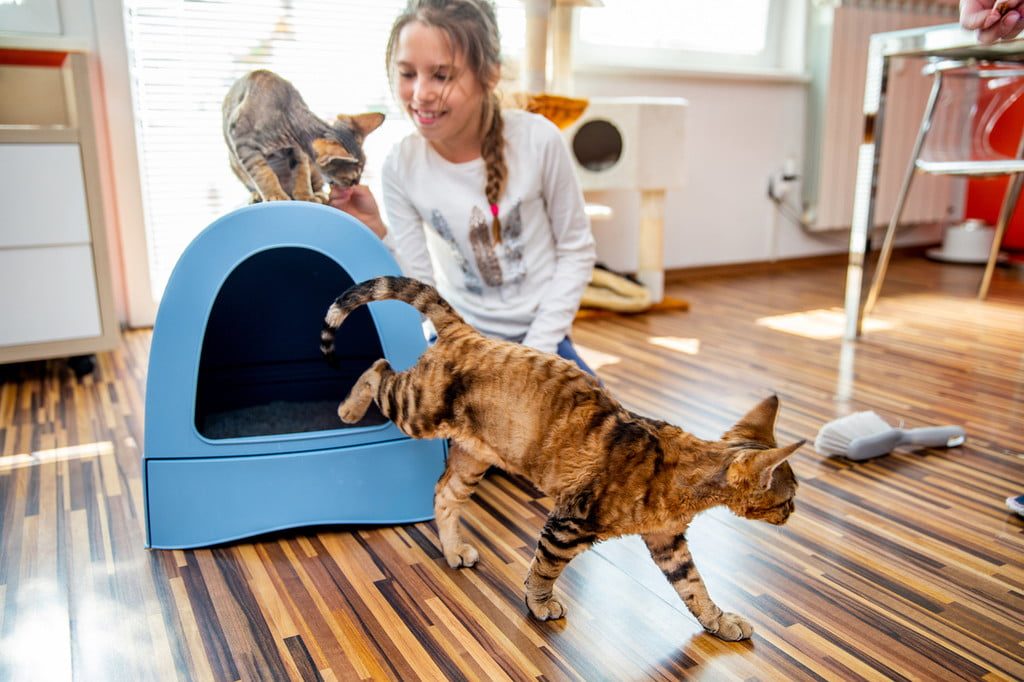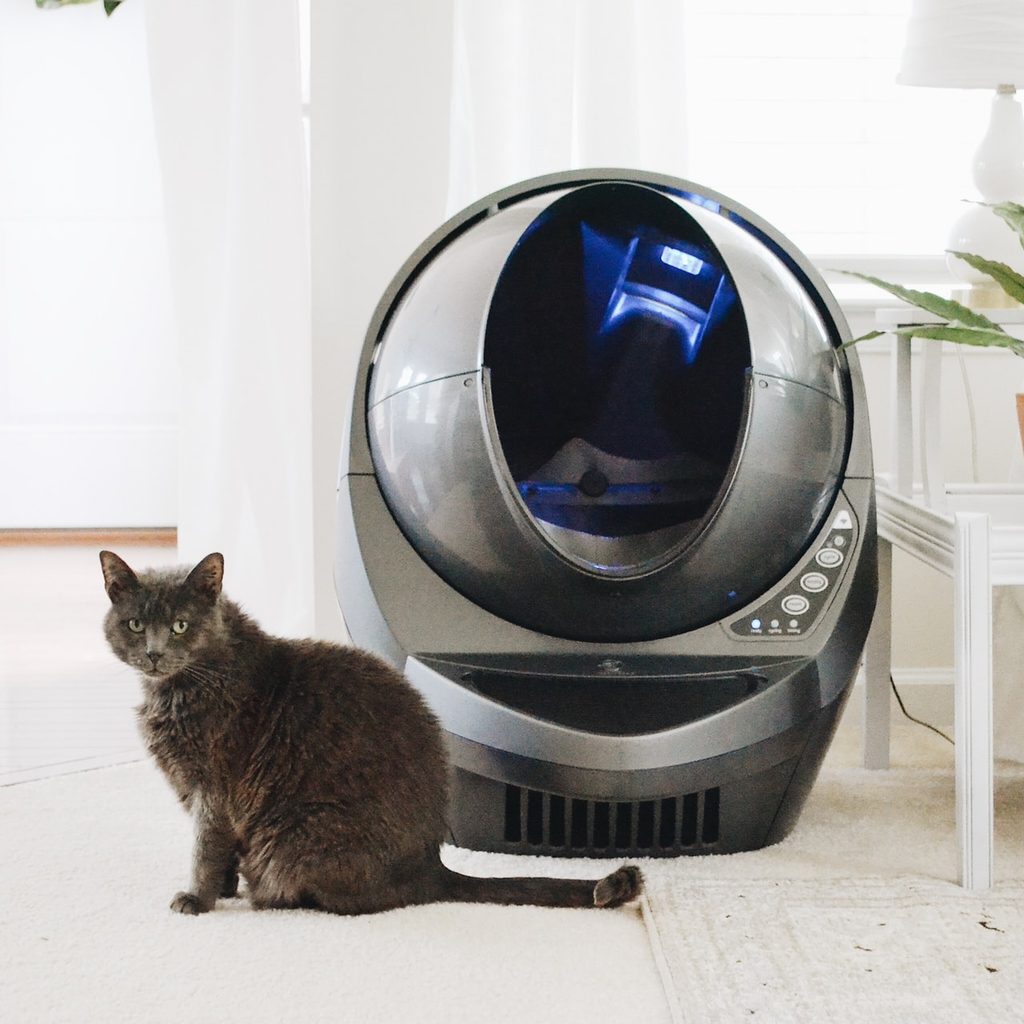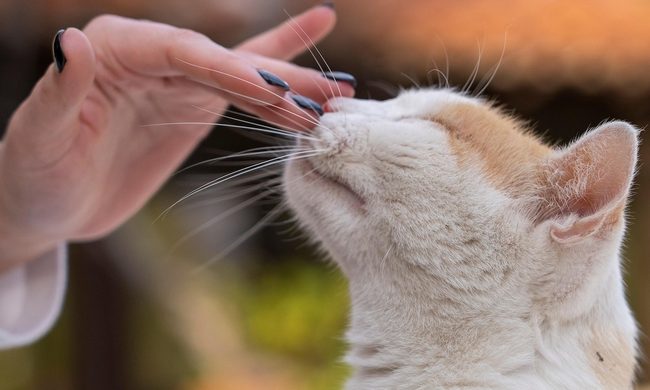A dirty litter box is unsightly and smelly, but it also carries serious health risks for you and your cat. It’s all too easy to let your cat’s litter box go uncleaned for too long, especially if you’re busy and only remember about the box when it starts to smell. But just like you make a point of feeding your cat every morning, you also need to make scooping and deep cleaning his litter box part of your routine.

What are the risks associated with a dirty litter box?
A litter box that isn’t cleaned regularly poses many dangers that can lead to serious diseases that are harmful to both you and your cat. The solution is easy, especially when you think about the products that can simplify cleaning the litter box. Read on to learn what the risks are so you and your furry friend will both be safer.
- Ammonia exposure: As urine and feces build up in the litter box, they can start to release ammonia. This toxic gas can cause all sorts of unpleasant symptoms, including headaches, asthma attacks, and, if left unchecked, pneumonia. Ammonia can stress your immune system and be harmful to your health in general.
- Bartonellosis: Also called cat-scratch fever, Bartonellosis is a disease that can spread from cats to humans. According to the Cornell Feline Health Center, this disease can lead to hospitalization, and can even be potentially life-threatening. People with weakened immune systems are particularly at risk.
- Salmonellosis: Salmonellosis is another disease that can spread from cats to humans during litter box cleaning. This disease causes symptoms like diarrhea, vomiting, and fever.
- Toxoplasmosis: According to Pet MD, toxoplasmosis is a disease that cats can spread to humans. It’s caused by a parasite that is present in the feces of some cats. It can result in flu-like symptoms if you’re infected, and it can cause miscarriage or stillbirth in pregnant women.
- Roundworms: It’s possible for you to get parasites from a dirty litter box. Parasites live in cat poop, and if you become infected with roundworms, you can have symptoms like nausea, diarrhea, weight loss, and coughing.
- Cat illnesses: Cats are very particular about their litter boxes, and if yours feels that his litter box is too dirty, he might decide not to use it. He could start relieving himself in other areas of the house. According to Anasazi Animal Clinic, it’s also possible for your cat to be contaminated by bacteria while using a dirty litter box, which can contribute to problems like feline urinary tract infections.

How to reduce litter box risks
To limit the risk of illness, focus on ways to keep your cat’s litter box clean. Create a litter box cleaning schedule that ensures the box will be completely emptied, scrubbed, dried, and refilled at least once a week, if not more often. Make sure to also scoop your cat’s litter box daily to help reduce messes and smells between those deep cleanings.
If you have a hard time keeping up with the litter box cleanings, consider using a robot-type litter box that can automatically clean itself instead. These types of litter boxes tend to be an expensive investment, but they can save you time and effort.
If you’re looking for ways to make clean-up easier, you might experiment with using litter box liners. These liners often make it easy to clean out all the litter at once, and they help prevent litter from getting stuck to the bottom of the box.

How to stay safe when cleaning the litter box
Because there are numerous diseases and parasites that you could possibly pick up while cleaning a litter box, it’s important to get into good litter box cleaning habits. It’s best to wear gloves when cleaning litter boxes and then immediately take the dirty litter out to a trash can or dumpster. Always wash your hands thoroughly after cleaning a litter box. Avoid letting children and pregnant women handle litter boxes.
Cleaning your cat’s litter box can be inconvenient, but it’s essential to keep everyone safe and healthy, as good litter box cleaning habits can help reduce the risk of health issues. In addition, good litter cleaning habits can also encourage your cat to continue using his box as intended. It can be challenging to correct behavioral issues if your cat starts relieving himself outside his litter box. To head off those issues, focus on keeping your cat’s litter box clean and inviting instead. Once you get into a routine, cleaning your cat’s litter box will become another part of your schedule and help keep you and your feline friend happy and healthy.



